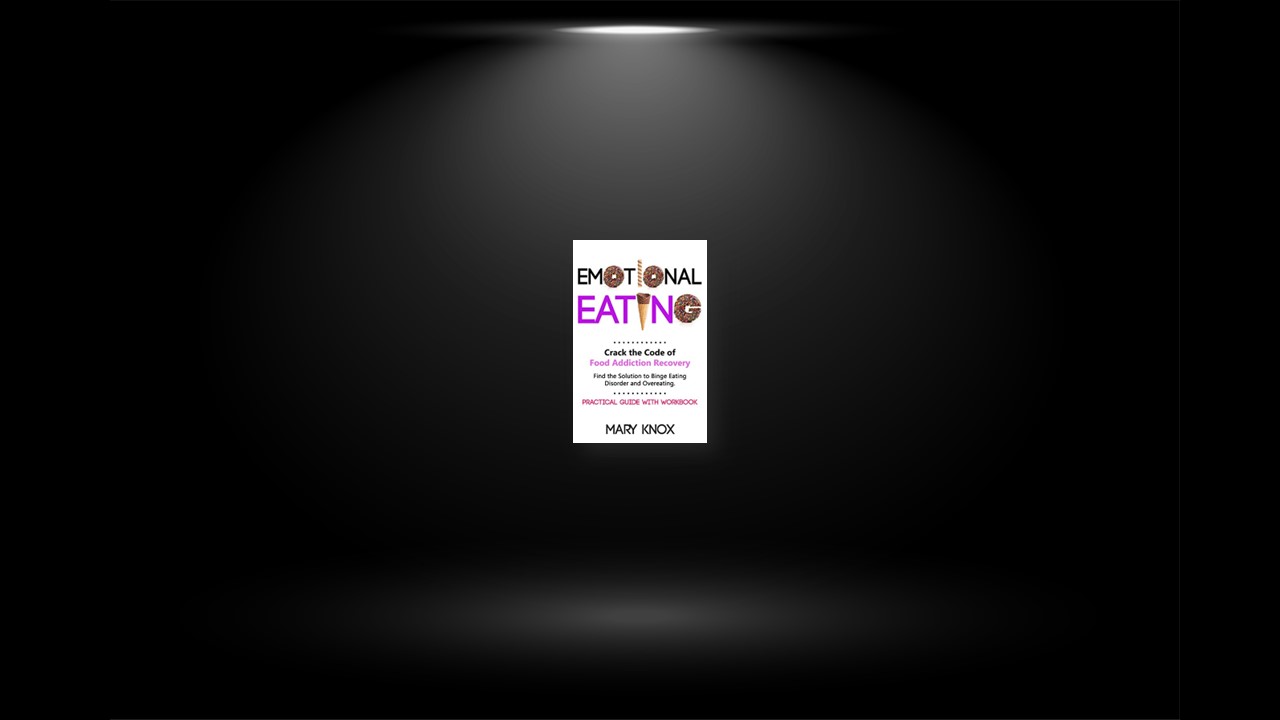The Cycle of Emotional Eating

Because scientists and psychiatrists understand this process that occurs in the brain, they know that food cravings can indicate emotional deficiencies. While there are other types of cravings that can occur, such as those that pregnant ladies experience or those that show nutrient deficiencies, there are ways to tell that a craving is caused by emotional lacking of some sort. It begins by determining the foods that a person craves and when they crave them.
If every time someone has a stressful situation, they feel like eating a pizza, or if a person who is depressed tends to eat a lot of chocolate, this could indicate emotional eating. If you crave fruits like a watermelon on a hot day, you are likely just dehydrated, and your body is trying to get water from a water-filled fruit that it knows will make it more hydrated. Examining things and situations like his leads scientists and psychiatrists to explore this concept in more depth and determine what types of emotional deficiencies can manifest themselves through food cravings in this way.
Feeling Empty or Bored
When we feel bored, we often decide to eat or decide that we are hungry. This occupies our mind and our time and makes us feel less bored and even feel positive and happy. We also may eat when we are feeling empty. When we feel empty the food will quite literally be ingested in an effort to fill a void, but as we know, the food will not fill a void that is emotional in sort, and this will lead to an unhealthy cycle of trying to fill ourselves emotionally with something that will never actually work.
Affection Deficiency
Another emotional deficiency that could manifest itself as food cravings is an affection deficiency. This type of deficiency can be feelings of loneliness, feelings of a lack of love, or feelings of being undesired. If a person has been without an intimate relationship or has recently gone through a breakup, or if a person has not experienced physical intimacy in quite some time, they may be experiencing an affection deficiency.
Low Self-Esteem
Another emotional deficiency that may be indicated by food cravings is a low level of self-esteem. Low self-esteem can cause people to feel down, unlovable, inadequate, and overall negative and sad. This can make a person feel like eating foods they enjoy will make them feel better, even if only for a few moments.
Mood
A general low mood can cause emotional eating. While the problem of emotional eating is something that is occurring multiple times per week and we all have general low moods or bad days, if this makes you crave food and especially food of an unhealthy sort, this could become emotional eating. If every time we feel down or are having a bad day, we want to eat food to make ourselves feel better; this is emotional eating.
Depression
Suffering from depression also can lead to emotional eating. Depression is a constant low mood for a period of months on end, and this low mood can cause a person to turn to food for comfort and a lift in spirit. This can then become emotional eating in addition to and because of depression.
Anxiety
Having anxiety can lead to emotional eating, as well. There are several types of anxiety, and whether it is general anxiety (constant levels of anxiety), situational anxiety (triggered by a situation or scenario), it can lead to emotional eating. You have likely heard of the term comfort food to describe certain foods and dishes. The reason for this is because they are usually foods rich in carbohydrates, fats, and heavy in nature. These foods bring people a sense of comfort.
Stress
Stress eating is probably the most common form of emotional eating. While this does not become an issue for everyone experiencing stress, and many people will do so every once in a while, it is a problem for those who consistently turn to food to ease their stress. Some people are always under stress, and they will constantly be looking for ways to ease their stress. Food is one of these ways that people use to make themselves feel better and to take their minds off of their stress.
How Exercise Will Help You in Recovery
Exercise will help you in your journey to recovery because of the many ways that it affects our different body systems. As you know, all of our body systems work together to form the person that we are. If one of them isn’t functioning quite as well as it should be, all of the other systems feel it too. Exercise works on all of these systems at the same time, and if one of them isn’t firing on all cylinders, exercise will help that system to wake up, improve, and to stay healthy. Exercising while on this process to recovery will aid in keeping you feeling strong when it may be getting tough. Exercising will show you what your body can do and how strong it is, which in turn will make you feel stronger mentally.
How Exercise Affects Mood and the Brain
When we exercise, our brain releases chemicals that tell us that we enjoy the effects that the exercise is giving us. This feeling is known as “runner’s high,” and it is that happiness you feel after you run a long-distance or complete a workout. When you are feeling down, and you exercise, your mood will lift because of this runner’s high.
This runner’s high can be compared to those rewarded feelings that the highly sugary foods give us, but with runner’s high, the sense of elation and accomplishment last way longer than the rewarded happy feelings we get from eating food. Industrial food makes our brains feel happy, but our body feels heavy and lethargic. Exercise makes all of our body parts feel great at the same time, and this is why the effects of runner’s high are so long-lasting.
Exercise affects the brain in other chemical ways, as well. When we exercise, our heart rate increases, as you know. What this does is carry more oxygen to our muscles so that they can keep exercising. It also carries more oxygen to our brains. More oxygen and blood flow to the brain means that your brain will work more efficiently, more sharply, and with more clarity, after you finish exercising. More blood flow to the brain also means that it will be generally healthier.
How Exercise Affects the Body
When we exercise, we become stronger, faster, and more agile. This not only helps us to exercise better but it helps us in our everyday lives. Moving through life with more ease than before is a great feeling that can only be achieved through exercise. Our bodies are built to move, and they love it when we do move! Our bodies are built to become stronger with the more we do continually, and this is what inevitably happens as soon as we begin exercising regularly. You can start to see aesthetic changes, as well. You can see your muscles growing, your body toning, and your fat disappearing.
These changes on the inside and the outside make us feel great about the body we live in and about the progress we are making mentally. Taking the time to go to the gym and exercise and stick with an exercise program shows our body that we are willing to do the hard work that exercising takes, and it also shows our mind the same thing.
How to Work on Willpower
Willpower is something that is hard to pinpoint, but that is somewhere within all of us. We have to find it somewhere within, and it is there! Think of someone or some people who you think demonstrate great willpower.
Ask yourself what about them shows this. Ask yourself how you think they do this (don’t reply with “they just have it”). Ask yourself what other qualities they possess that you admire. Ask yourself if you can pull those same qualities from within yourself.
Thinking in this way and trying to emulate a person you admire and respect will help you to know precisely how willpower looks to you and how willpower displays itself in a person. Having something more concrete to work towards or to reference will help you to find your own willpower that is within you.
How to Stick to the Diet
The key to sticking to the diet is one word: preparation. Being prepared for anything will ensure that you won’t be able to give yourself any excuse to fall off of the diet. For example, doing all of the following:
- Meal prep your lunches.
- Find a place to buy a healthy lunch near your work or school, just in case you forget your lunch one day.
- Prepare a menu for your dinners for the week each weekend.
- Don’t buy the snacks that you would usually crave at the grocery store.
- Grocery shop with a specific list and when you are not hungry.
- If you are going out socially, pre-plan what you will order and the number and type of drinks you will have. Then stick to this.
Doing all of the above things will make it almost impossible to not stick to the diet. Because everything will be prepared for you already, all you have to do is move the fork to your mouth at every meal, and the diet is stuck to!
How to Reward Yourself as You Hit Milestones
Rewarding yourself is important as you make your way through this difficult journey. When you hit milestones like one month on the diet or one month without giving in to a craving , then you will keep yourself motivated because you will be working toward your next milestone and, therefore, your next reward each day.
Leave enough space between rewards; otherwise, they won’t feel as special. Reward yourself once per month at first and then once every few months as you get more used to everything. You can reward yourself by allowing yourself to buy a medium popcorn at the movie theatre after you have exercised three times a week for a month, for example.
Plan your rewards and write them down on a calendar so that if you are feeling a lack of motivation, you will be able to look at the visual and see how close you are to achieving that goal and that reward. We as creatures love to be rewarded and love to accomplish goals and so giving yourself these options will help you to achieve them.


